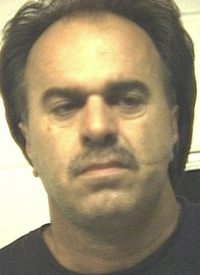
When news broke yesterday that U.S. intelligence agencies thwarted an Iranian government-sponsored assassination plot against the Saudi Arabian ambassador, the blogosphere immediately leaped into a frenzy, sifting through the information released by the Justice Department. And a number of experts have come forward questioning the data provided by the federal government, suspicious that there might be some underlying intent at play.
According to the Justice Department, Manssor Arbabsiar (left) and Gholam Shakuri conspired to murder Ambassador Adel Al-Jubeir and attack Saudi installations in the United States. Targets included Israel’s embassy in Washington, as well as those of Israel and Saudi Arabia in Argentina. The Justice Department claims that the Qods Force of the Iranian Islamic Revolutionary Guard Corps was involved in the plot, as well as a member of a Mexican drug cartel, who turned out to be an informant of the American Drug Enforcement Administration (DEA).
Likewise, U.S. Attorney General Eric Holder said that the plot “was directed and approved by elements of the Iranian government. High-up officials in those agencies, which is an integral part of the Iranian government, were responsible.”
Holder asserted, “In addition to holding these individual conspirators accountable for their alleged role in this plot, the United States is committed to holding Iran accountable for its actions.”
For some, however, things do not add up.
First, skeptics contend that it is not likely for the Qods Force to slip up if it had in fact been behind the plot. The Christian Science Monitor reports:
Indeed, the Qods Force has a reputation for careful, methodical work — as well as effective use of local proxies, and ultimately their pragmatic deployment by Tehran as covert tools to expand Iran’s influence across a region in flux. That explains why Iran experts are raising questions about fresh US charges of an Iran-backed bomb plot, this time to kill the Saudi ambassador to Washington and blow up the Saudi and Israeli embassies.
Alireza Nader, an Iran analyst at the Rand Corp. and coauthor of studies about the Revolutionary Guard, questions this as well. "It’s a very strange case[;] it doesn’t really fit Iran’s mode of operation. When you look at Iranian use of terrorism, it has some very specific objectives, whether it’s countering the United States in Iraq or Afghanistan, or retaliating against perceived Israeli actions.” He adds, "This [plot] doesn’t seem to serve Iran’s interests in any conceivable way. Assassinating the Saudi ambassador would increase international pressure against Iran; could be considered an act of war … by Saudi Arabia; it could really destabilize the government in Iran; and this is a political system that is interested in its own survival."
Nader also contends that it seems unlikely for Iran to have been behind the plot because there would have been no benefit for that country. As Iran has been struggling to avoid further sanctions, improve relations with non-Western partners, and continue working on its nuclear program, Nader indicates it is “difficult” to believe that Qassim Soleimani, the commander of the Qods, would order an attack that “would put all of Iran’s objectives and strategies at risk.”
Similarly, Gary Sick, a professor at Columbia University and former White House aide during the 1979 Iranian revolution and hostage crisis, comments, “The plot, if true, departs from all known Iranian policies and procedures,” particularly by relying “on a non-Islamic criminal gang to carry out this most sensitive of all possible missions.” Relying on “at least one amateur and a Mexican criminal drug gang that is known to be riddled with both Mexican and US intelligence agents” appears to be sloppy, adds Sick. “Whatever else may be Iran’s failings, they are not noted for utter disregard of the most basic intelligence tradecraft.”
What’s more, others point out that Arbabsiar would also have been an odd choice for such a plot, as he was formerly a used car salesman.
“The Iranian modus operandi is only to trust sensitive plots to their own employees, or to trusted proxies such as Hezbollah, Saudi Hezbollah, Hamas, the Sadr faction in Iraq, Iran-friendly extremist Muslims in Afghanistan and other pro-Iranian Muslim groups,” explains Kenneth Katzman of the Congressional Research Service. “Are we to believe that this Texas car seller was a Qods sleeper agent for many years resident in the US? Ridiculous,” insists Katzman, who authored a study of the Revolutionary Guard in the 1990s. “They [the Iranian command system] never ever use such has-beens or loosely connected people for sensitive plots such as this.”
Former CIA agent Robert Baer asserts that it is unbelievable that the Qods would have employed a used car salesman or Mexican drug lords in such a plot. He points out that they “always use reliable proxies,” adding, “This is sloppy! Sloppy! Sloppy! This is not characteristic of the Qods Force at all.” But Baer concludes that it might be indicative of a failure in the Qods Force and does not attempt to assert that the plot was fabricated in any way.
Others question the believability of even the existence of the plot.
Antiwar.com has gone so far as to call the entire plot “fake,” contending that it is “another one of US law enforcement’s manufactured ‘anti-terrorist’ triumphs, where the feds set somebody up, fabricate a ‘crime’ out of thin air, and then proceed to ‘solve’ a case that never really existed to begin with.”
Likewise, Retired U.S. Army Lieutenant Colonel Anthony Shaffer claims that an FBI insider informed him that the plot was entirely manufactured by the Obama administration and claims that no information regarding the plot even exists.
Shaffer contends that the Iranian Qods are far too sophisticated to attempt such an assassination on United States soil when it could do it more easily in the Middle East.
Appearing on Judge Andrew Napolitano’s Fox News program, Shaffer said, “It does not smell correctly.” When Napolitano asked if perhaps Arbabsiar was the victim of another FBI sting, Shaffer responded, “I think that’s part of it.”
“The FBI’s had a record lately and I did talk to one of my inside guys and he is saying he thinks the same thing, you know why, because he can’t find any real information and he’s got a clearance — so that tells him that there’s something going on that’s extraordinary by the fact that he’s an inside investigator, knows what’s going on and yet, I’m gonna quote here, ‘There’s nothing on this within the DOJ beyond what they’ve talked about publicly’ — which means to him that there’s something very wrong with it,” said Shaffer.
The skepticism surrounding the story of the uncovered plot has been so significant that even the New York Times was forced to admit that the questionable nature of the information has inspired “a wave of puzzlement and skepticism from some foreign leaders and outside experts.”
Some are pointing to a 2009 report entitled, “Which Path to Persia?” wherein the Brookings Institution wrote, “It would be far more preferable if the United States could cite an Iranian provocation as justification for the airstrikes before launching them. Clearly, the more outrageous, the more deadly, and the more unprovoked the Iranian action, the better off the United States would be.”
And for others, the timing of the uncovering of the alleged plot is suspicious, as it serves as a good distraction for Holder, who is currently under investigation for his role in the notorious Fast and Furious gun-walking program.
Photo: Manssor Arbabsiar, a U.S. citizen, along with a member of Iran’s Qods Force, were charged in New York federal court with conspiring to kill Adel Al-Jubeir, the Saudi ambassador to the U.S. on Oct. 11, 2011: AP Images




